| Vintage Pulp | Mar 31 2023 |


Something unusual we ran across recently. Above you see a Yugoslavian poster for Afrička veza, an Italian film originally made in 1973 as Contratto carnale, released in English as The African Deal, and shot in Ghana. The poster is unusual because, though its text is Croatian, the actual art very much echoes vintage Ghanaian movie posters, such as here and here. We've never seen a Yugoslavian poster in this style. Our opinion is that because the movie was made in Ghana and was certainly released there at some point, the art was painted for a Ghanaian poster then borrowed by the Yugoslavian distributors Inex Film. We talked about Contratto carnale a few years back. It starred George Hilton, Calvin Lockhart, beautiful Anita Strindberg, and yummy Yanti Somer, was originally released in 1973, and premiered in Yugoslavia sometime in 1976.
| Vintage Pulp | Mar 23 2022 |

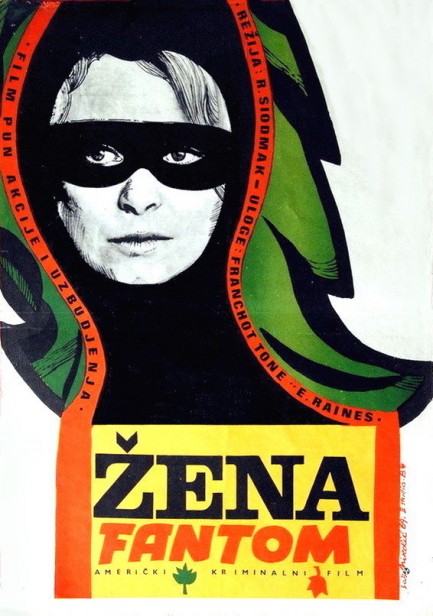
| Vintage Pulp | Jan 14 2018 |

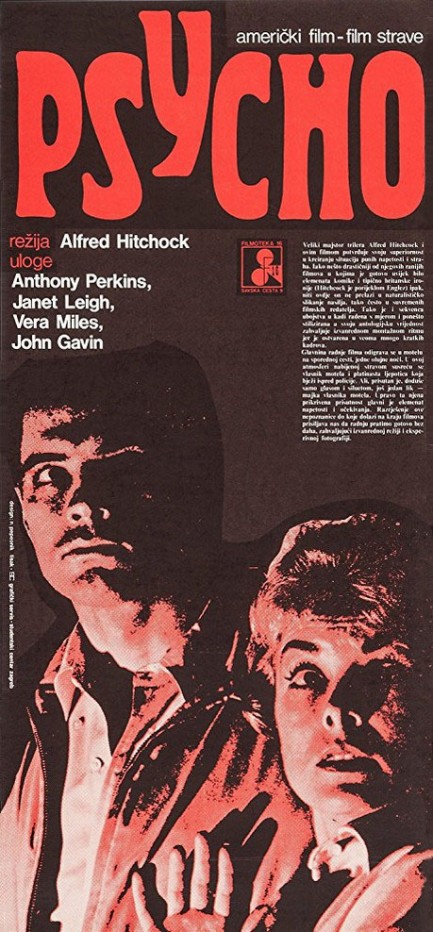
When we wrote about Psycho a while back we came across this Yugoslavian poster which we're sharing today, finally. Usually we write about films on their release dates but there isn't an exact one known for Yugoslavia. It arrived there in 1963, though, three years after its U.S. run. This two tone poster is about as low rent as it gets, but it's still effective, we think.
| Vintage Pulp | Feb 12 2017 |

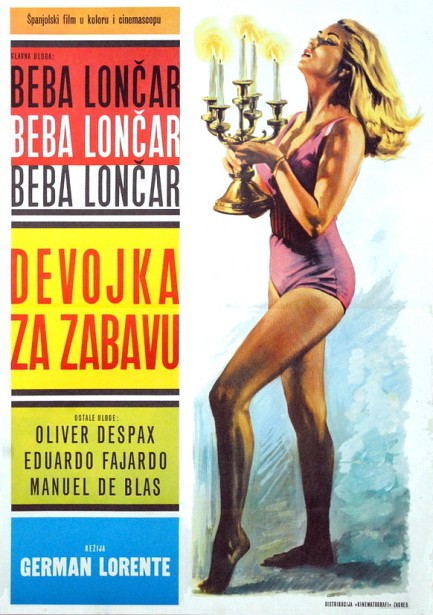
Above you see a poster from the former Yugoslavia, in Serbo-Croatian (we think), for the film Devojka za zabavu, starring Beba Lončar. We haven't watched this, so no summary, but it's available should you feel the urge. We're primarily interested in the art. The poster says this is a Španjolski film, or Spanish film, and indeed it was originally made in Spain as Amor en un espejo, and titled in the U.S. Cover Girl. The poster was adapted from the Spanish promo art painted by Carlos Escobar, who signed his work as Esc. On the Spanish version his signature is prominent, but the Yugoslavians decided to wipe it out for some reason. We already showed one example of Escobar's talent featuring Sharon Tate, and it may be one of the most beautiful of the hundreds of posters to adorn Pulp Intl. over the years. This one, which uses the lovely Lončar as a model, is also good. Evidence of what a big star the Serb actress was in her native Yugoslavia exists in her name, thrice repeated above the film's title, which is not how the Spanish poster was set up. Check out the Tate promo here. And check out Lončar here. Amor en un espejo premiered in Spain today in 1968.
| Musiquarium | Jun 13 2016 |

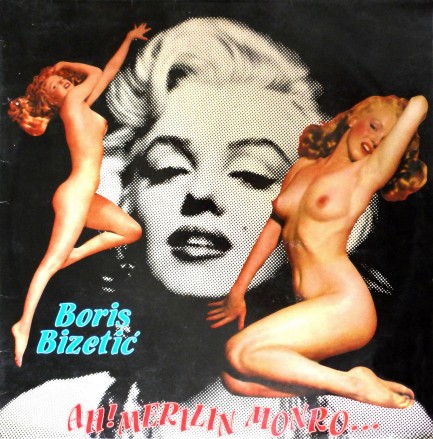
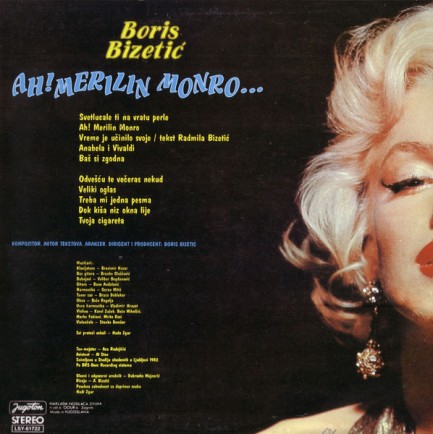
Here's little curio from the former Yugoslavia—a record sleeve from Serb pop-rock artist Boris Bizetić with a Marilyn Monroe cover motif. We've seen her image rather poorly used on album covers, but this one is nice, we think, if almost certainly unlicensed. And the music? Hah hah. We dare you.
| Vintage Pulp | Sep 13 2015 |

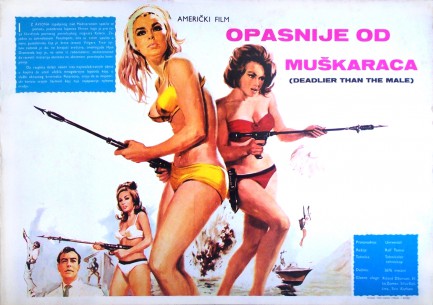
Above and below you see some Yugoslavian promo cards for Opasnije od muškaraca, aka Deadlier Than the Male, a film we’ve talked about a few times before. The text is in Serbian, and you’ll notice it describes the movie as “Američki." Actually, it was British. But Brits, Americans, who can tell them apart, really? We imagine the Yugoslavian distributors of the film knew quite well it came from Britain-based Greater Films Ltd., but that they labeled it Američki to make it more marketable. As if Elke Sommer and Sylva Koscina aren’t sufficient. See more from the film here.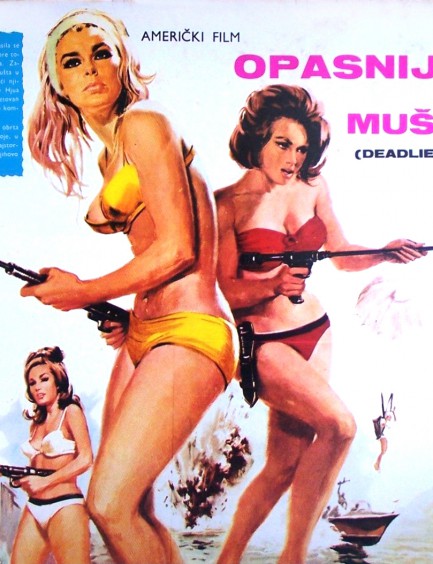
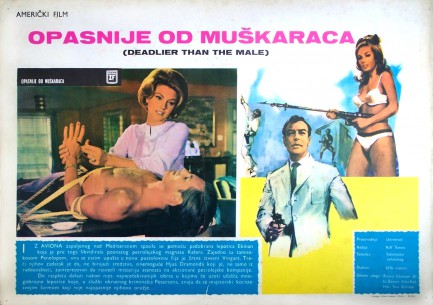
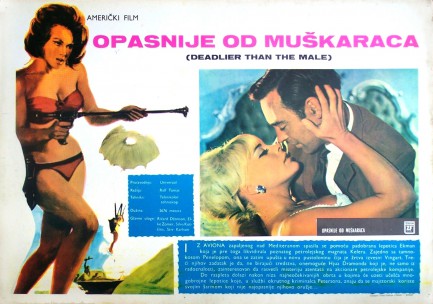
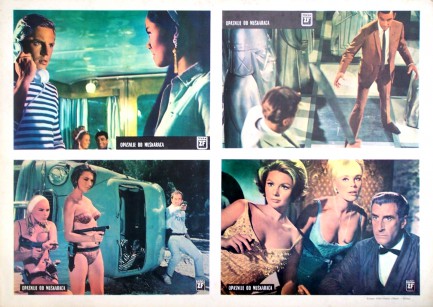
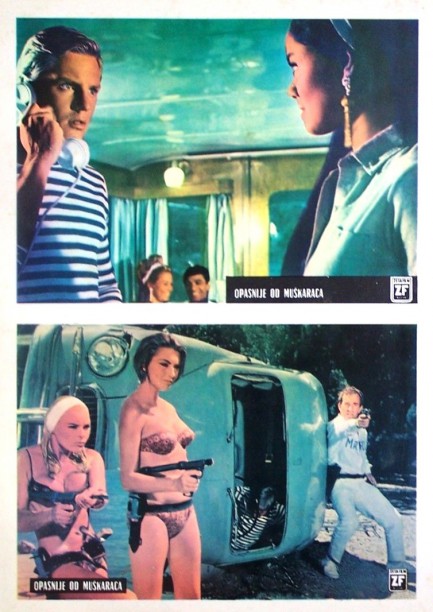
| Vintage Pulp | Jan 19 2015 |

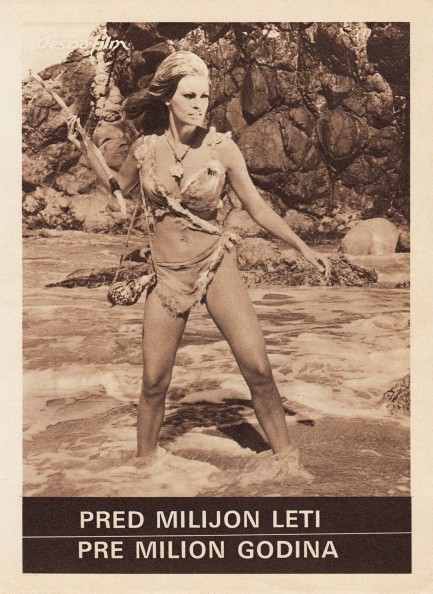
We’re looping back to the former Yugoslavia today, this time with a rare film program for Raquel Welch’s One Million Years B.C. If it seems we just talked about this movie, you’re right. We shared a promo from the film last week. What you see above is the front of a dual language promo pamphlet, half written in… well we aren’t sure. The language situation is complicated there. Half in Serbo-Croatian and half in Slovenian, we think. Feel free to correct us. In any case, it’s a pretty cool little item.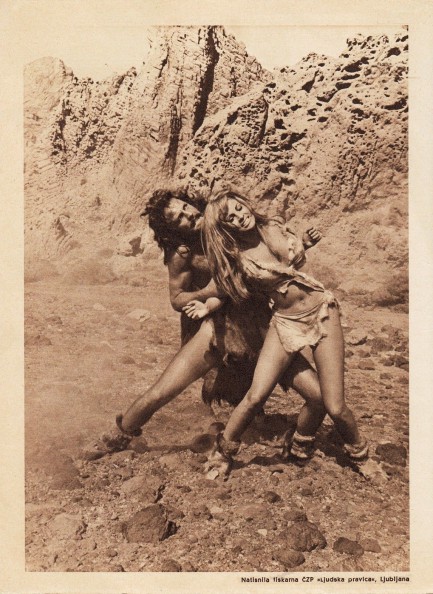
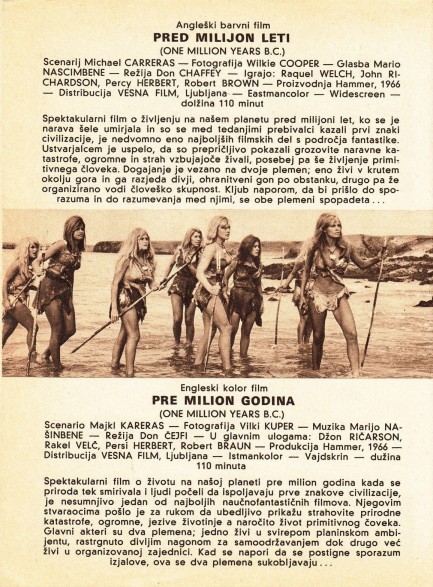
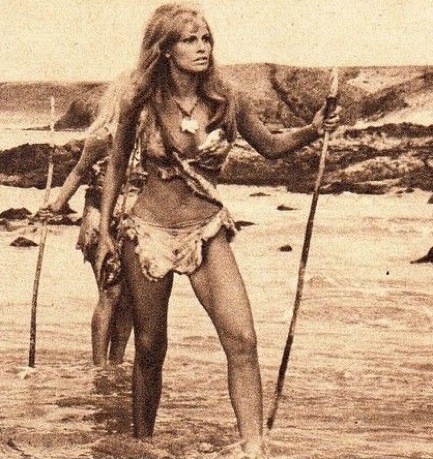
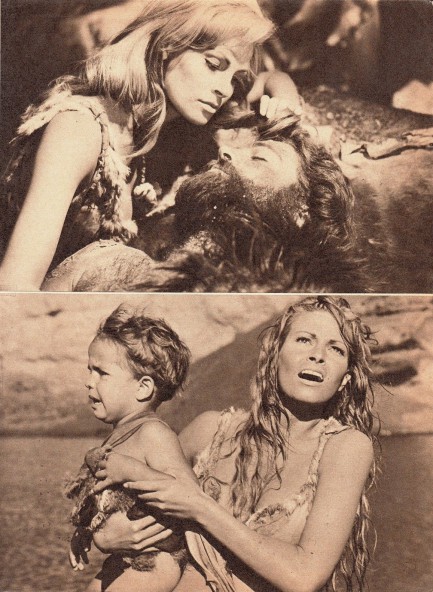
| Vintage Pulp | Jan 14 2015 |

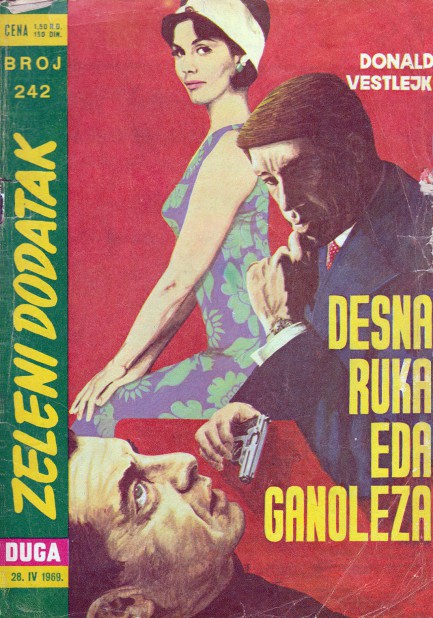
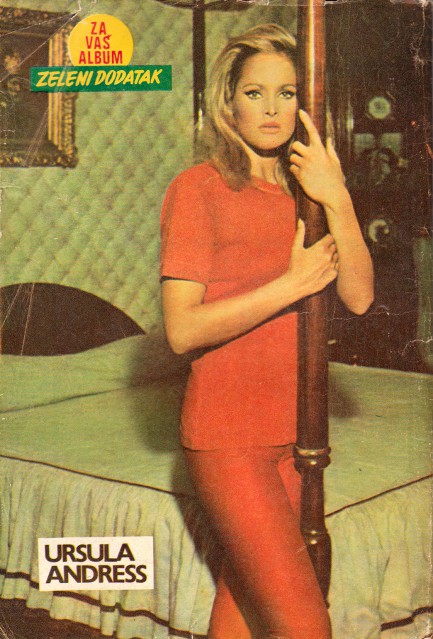
Duga was a publisher in the former Yugoslavia that reprinted many English language mysteries and thrillers into Serbian. The company’s name means Rainbow, and this novel from Donald E. Westlake was released in 1969 as a Zeleni Dodatak, or Green Edition, with Ursula Andress on the back. We have no idea why she’s there. We assume Duga put random hotties on the rear covers to entice buyers. The text there says “to your album,” which we like to think of as a mental album, like a spank bank, but that’s just us being rude. Obviously, the term refers to one’s collection of Green Edition back cover celebs. Collect them all and win a prize! That’s right! A weeklong trip to Zlatibor! Okay, now for what we don’t know. We don’t know which Westlake book this is. Desna Ruka translates from Serbian as “right hand,” but Eda Ganoleza translates as nothing—at least on the interfaces we used. A scan of the Westlake bibliography turns up no novel containing right hand in the title. So your guess is as good as ours. Doubtless people in Zlatibor know.
| Femmes Fatales | Sep 4 2014 |


| Vintage Pulp | Mar 31 2012 |


Above, an excellent pulp style promo poster for the West German thriller Der Satan lockt mit Liebe. The film’s title was translated literally into Satan Tempts with Love for some of its English language releases, but it became better known internationally as Devil’s Choice. In the former Yugoslavia, where this piece originates, it was called Davo mami s ljubavju. The movie starred the beautiful British actress Belinda Lee, who died almost exactly one year later in a horrific car accident while traveling from Las Vegas to Los Angeles. Lee wasn’t driving. She and two other passengers had left that duty to Alet Nino Falenza, who was racing along at approximately 100 mph when the car suffered a blowout. It skidded nine-hundred feet before finally flipping, sending Lee, who had not worn a seat belt, sailing more than 60 feet from the wreck. She was the only fatality. The shot of her below dates from 1955. Der Satan lockt mit Liebe premiered in West Germany today in 1960.






































































